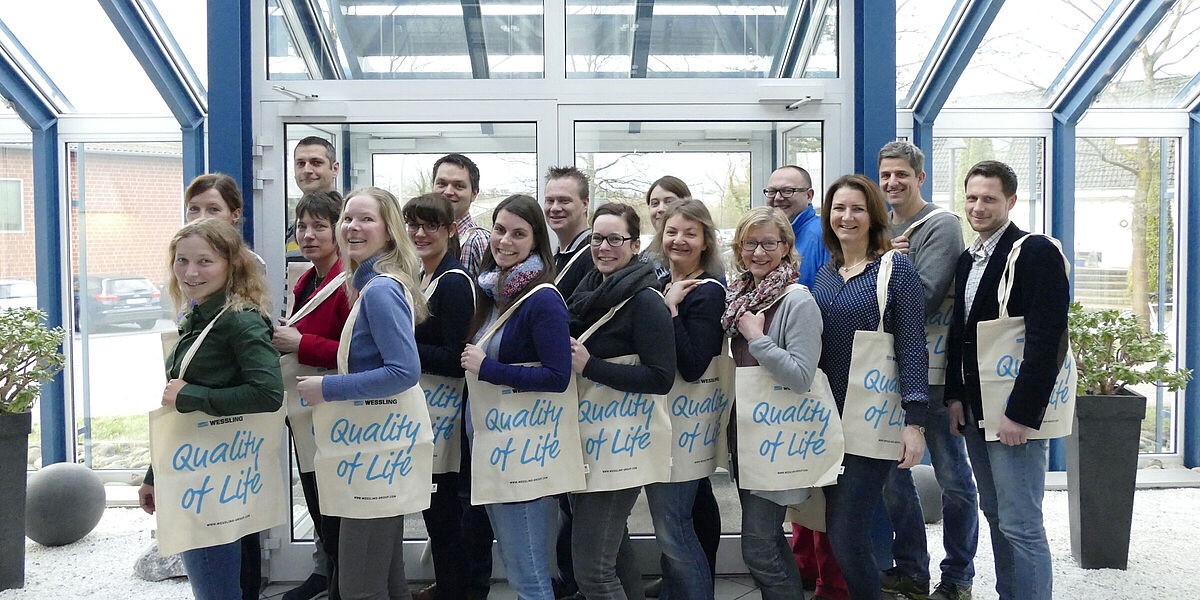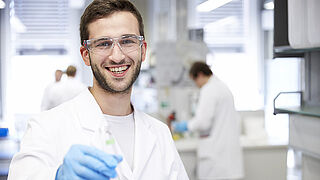WESSLING employees replace plastic bags with fabric ones
The employees of WESSLING are committed to the sustainable improvement of the quality of life on a daily basis. With the current campaign “Fabric bags not plastic bags” they are setting an example. “Our campaign should show that plastic can be replaced in many areas. With the use of the ecological WESSLING fabric bag, fair trade and made of cotton, we also bring this idea into our personal environment,” explains Diana Weßling from the international family-owned company WESSLING Group.

The long-term replacement of short-lived plastic products is an important contribution to environmental protection and to improving the quality of life. The wide range of services provided by the international group of companies, whose headquarters are in Altenberge, also includes various analysis services in the field of microplastics. In addition, the experts advise on the subject of “plastics in the environment”.
Due to their outstanding properties, plastics are used in a wide variety of applications. The increase in demand leads to a corresponding increase in production of plastics.
“A global problem, however, is that plastic is increasingly being released into the environment, which poses a threat to the ecological system. The entry of plastic waste into the environment can have various causes, carelessly discarded waste being one of the main reasons. Due to a high durability of plastic in the environment, sometimes covering centuries, quantities accumulate steadily. The plastic parts are exposed to various environmental influences and can fragment into smaller units, so-called microplastics,” explains Dr Jens Reiber.
Plastic particles smaller than five millimetres are generally referred to as microplastics. A distinction is made between primary and secondary microplastics. Plastic particles that are industrially produced and used in some consumer products are referred to as primary microplastics. Secondary microplastics occur most frequently in the natural environment and are the result of decomposition processes of larger plastic units due to external environmental influences.
Replacing plastic in a sensible manner
- Do not pollute the environment with discarded plastics
- Use bags made from natural fabrics to transport goods
- Reusable instead of disposable
- Create awareness
